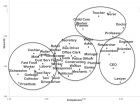(Press-News.org) Bottom Line: A health care system reduced its use of telemetry (monitoring to detect irregular heartbeats) by 70 percent by integrating the American Heart Association's (AHA's) guidelines into its electronic ordering system.
Author: Robert Dressler, M.D., M.B.A., of the Christiana Care Health System, Newark, Del., and colleagues.
Background: The AHA recommendations for non-intensive care unit (non-ICU) cardiac telemetry divide patients into three groups: cardiac telemetry is indicated, it may provide benefit or it is unlikely to provide benefit. Non-ICU telemetry appeared on the Society of Hospital Medicine's top 5 list for the Choosing Wisely Campaign in March 2013.
How the Study Was Conducted: The Christiana Care Health System approved the study, which began in December 2012 and ended in August 2013. The redesigned telemetry orders that included the AHA guidelines went into effect in March 2013.
Results: The average weekly number of telemetry orders fell from 1,032 to 593 and the average duration of telemetry fell from 57.8 to 30.9 hours as reported in the authors' research letter. The average daily number of patients monitored with telemetry dropped 70 percent from 357 to 109.The health care system's average daily cost for non-ICU cardiac telemetry decreased from $18,971 to $5,772.
Discussion: "Our project led to a sustained 70 percent reduction in telemetry use without adversely affecting patient safety."
(JAMA Intern Med. Published online September 22, 2014. doi:10.1001/jamainternmed.2014.4491. Available pre-embargo to the media at http://media.jamanetwork.com.)
Editor's Note: The authors made a funding disclosure. Please see the article for additional information, including other authors, author contributions and affiliations, financial disclosures, funding and support, etc.
Commentary: Call for Evidence-Based Telemetry Monitoring
In a related commentary, Nader Najafi, M.D., of the University of California, San Francisco, writes: "It is remarkable to achieve such a substantial reduction in the use of this resource without significantly increased adverse outcomes. This result suggests two conclusions. First, telemetry is overused and the AHA guidelines, imperfect as they may be, can safely rein in unnecessary monitoring. Second, since the guidelines exclude patients who do not have a primary cardiac condition, the intervention must have safely reduced or nearly eliminated monitoring for these patients. It is a reminder of the absence of known clinical benefit of using telemetry on medical and surgical services. To practice evidence-based care, we need a randomized trial of telemetry."
(JAMA Intern Med. Published online September 22, 2014. doi:10.1001/jamainternmed.2014.3502. Available pre-embargo to the media at http://media.jamanetwork.com.)
INFORMATION:
Editor's Note: Please see the article for additional information, including other authors, author contributions and affiliations, financial disclosures, funding and support, etc.
Media Advisory: To contact author Robert Dressler, M.D., M.B.A., call Hiran J. Ratnayake at 302-327-3327 or email HRatnayake@ChristianaCare.org. To contact commentary author Nader Najafi, M.D., Pete Farley at 415-502-4608 or email peter.farley@ucsf.edu.
Hardwiring AHA guidelines into order system reduced telemetry orders
2014-09-22
ELSE PRESS RELEASES FROM THIS DATE:
Discount generic drug programs grow over time
2014-09-22
Generic discount drug programs (GDDPs, which charge nominal fees to fill prescriptions) have grown over time and their initial lower use by racial/ethnic minorities has evaporated., writes author Song Hee Hong, Ph.D., of the University of Tennessee Health Science Center, Memphis, and Sunghee H. Tak, Ph.D., M.P.H., R.N., of the University of Memphis, Tennessee.
GDDPS can reduce medication costs and help patients get their drug therapy. However, the initial use of GDDPs was low in 2007 at 3.6 percent of patients receiving any prescription drugs, especially among minorities. ...
Few kids receive psychotherapy along with medication for ADHD, study finds
2014-09-22
About one quarter of commercially-insured children who are treated with medication for attention-deficit/hyperactivity disorder also receive psychotherapy, and the percentage is far lower in many parts of the country, according to a new RAND Corporation study.
Published as a research letter in the Sept. 22 edition of JAMA Pediatrics, the study is the first to document the substantial variation in receipt of talk therapy among U.S. children treated with ADHD medication, varying more than six-fold across counties in the United States.
For many children with attention-deficit/hyperactivity ...
Research study analyzes the best exercise for obese youths
2014-09-22
What exercise program can best fight the "epidemic" of teen obesity? According to a study published in the Journal of the American Medical Association (JAMA) Pediatrics, by combining aerobic exercise with resistance training.
The Healthy Eating Aerobic and Resistance Training in Youth (HEARTY) study, led by researchers at the University of Calgary and University of Ottawa, involved 304 overweight teens in the Ottawa/Gatineau area between the ages of 14 to 18. All were given the same four weeks of diet counseling to promote healthy eating and weight loss before being ...
Think the system for paying US doctors is rigged to favor surgeons? Study may surprise you
2014-09-22
ANN ARBOR, Mich. — A surprising new study pulls back the curtain on one of the most contentious issues in health care: differences in payment and income between physicians who perform operations, procedures or tests, and those who don't.
Contrary to perception, the research indicates, the physician payment system is not inherently "rigged" to favor surgeons and other procedure-performing doctors.
The new findings counter the widely held belief that a simple difference in pay per minute explains why doctors who perform procedures often earn nearly twice as much money ...
Scientists seen as competent but not trusted by Americans
2014-09-22
PRINCETON, N.J.—If scientists want the public to trust their research suggestions, they may want to appear a bit "warmer," according to a new review published by Princeton University's Woodrow Wilson School of Public and International Affairs.
The review, published in the Proceedings of the National Academy of Sciences (PNAS), shows that while Americans view scientists as competent, they are not entirely trusted. This may be because they are not perceived to be friendly or warm.
In particular, Americans seem wary of researchers seeking grant funding and do not trust ...
We drink more alcohol on gym days
2014-09-22
Thursdays to Sundays are when people both exercise more and drink more
Study used smartphones to record daily alcohol intake and physical activity
Findings differ from past research on physical activity and exercise
CHICAGO --- A new Northwestern Medicine® study finds that on days when people exercise more -- typically Thursdays to Sundays -- they drink more alcohol, too.
This is the only study to use smartphone technology and a daily diary approach for self-reporting physical activity and alcohol use.
"Monday through Wednesday people batten down the hatches ...
The fine line between breast cancer and normal tissues
2014-09-22
Boston, MA – Up to 40 percent of patients undergoing breast cancer surgery require additional operations because surgeons may fail to remove all the cancerous tissue in the initial operation. However, researchers at Brigham and Women's Hospital (BWH) have successfully tested a tool they developed that will help surgeons better distinguish cancerous breast tissue from normal tissue, thereby decreasing the chances for repeat operations.
The study is published online the week of September 22, 2014 in the Proceedings of the National Academy of Sciences.
The tool, known ...
Plant variants point the way to improved biofuel production
2014-09-22
Manufacturing biofuels from food crop by-products such as straw could be made quicker and cheaper thanks to the work of scientists in the UK and France.
Researchers funded by the Biotechnology and Biological Sciences Research Council (BBSRC) have discovered variant straw plants whose cell walls are more easily broken down to make biofuels, but which are not significantly smaller or weaker than regular plants.
The discovery could help ease pressure on global food security as biofuels from non-food crops become easier and cheaper to make.
The impact of carbon emissions ...
Study: Antifreeze proteins in Antarctic fishes prevent freezing…and melting
2014-09-22
CHAMPAIGN, Ill. — Antarctic fishes that manufacture their own "antifreeze" proteins to survive in the icy Southern Ocean also suffer an unfortunate side effect, researchers report: The protein-bound ice crystals that accumulate inside their bodies resist melting even when temperatures warm.
The finding is reported in the Proceedings of the National Academy of Sciences.
"We discovered what appears to be an undesirable consequence of the evolution of antifreeze proteins in Antarctic notothenioid fishes," said University of Oregon doctoral student Paul Cziko, who led ...
Healthy lifestyle choices may dramatically reduce risk of heart attack in men
2014-09-22
WASHINGTON (Sept. 22, 2014) — Following a healthy lifestyle, including maintaining a healthy weight and diet, exercise, not smoking and moderating alcohol intake, could prevent four out of five coronary events in men, according to a new study publishing today in the Journal of the American College of Cardiology.
While mortality from heart disease has declined in recent decades, with much of the reduction attributed to medical therapies, the authors said prevention through a healthy lifestyle avoids potential side effects of medication and is more cost effective for population-wide ...

